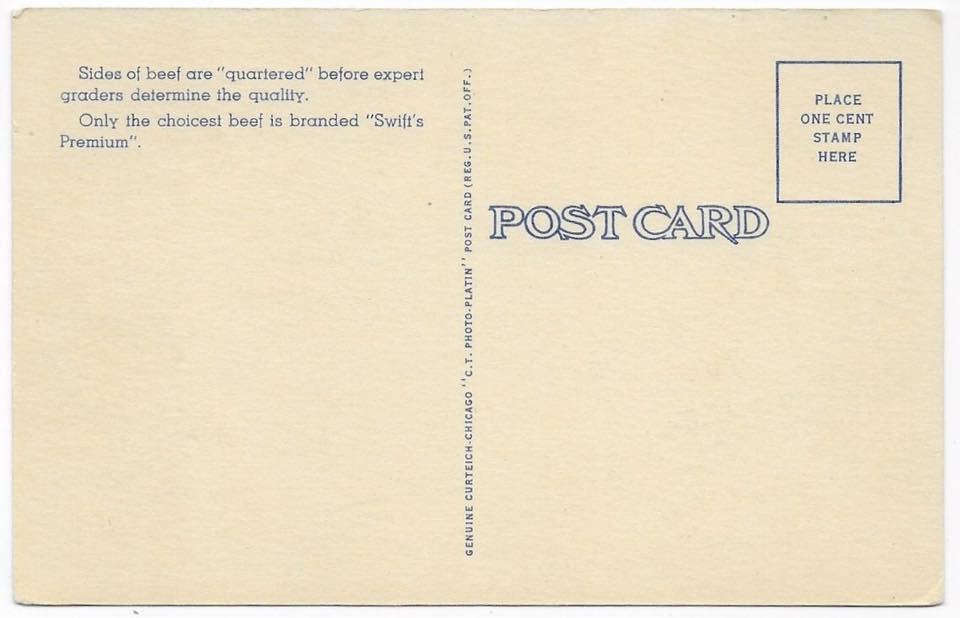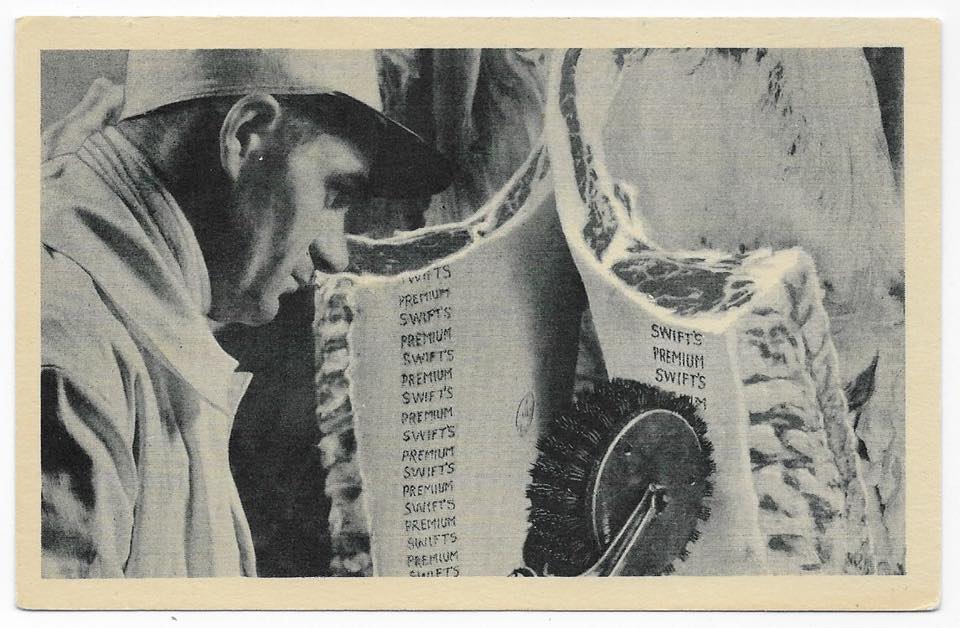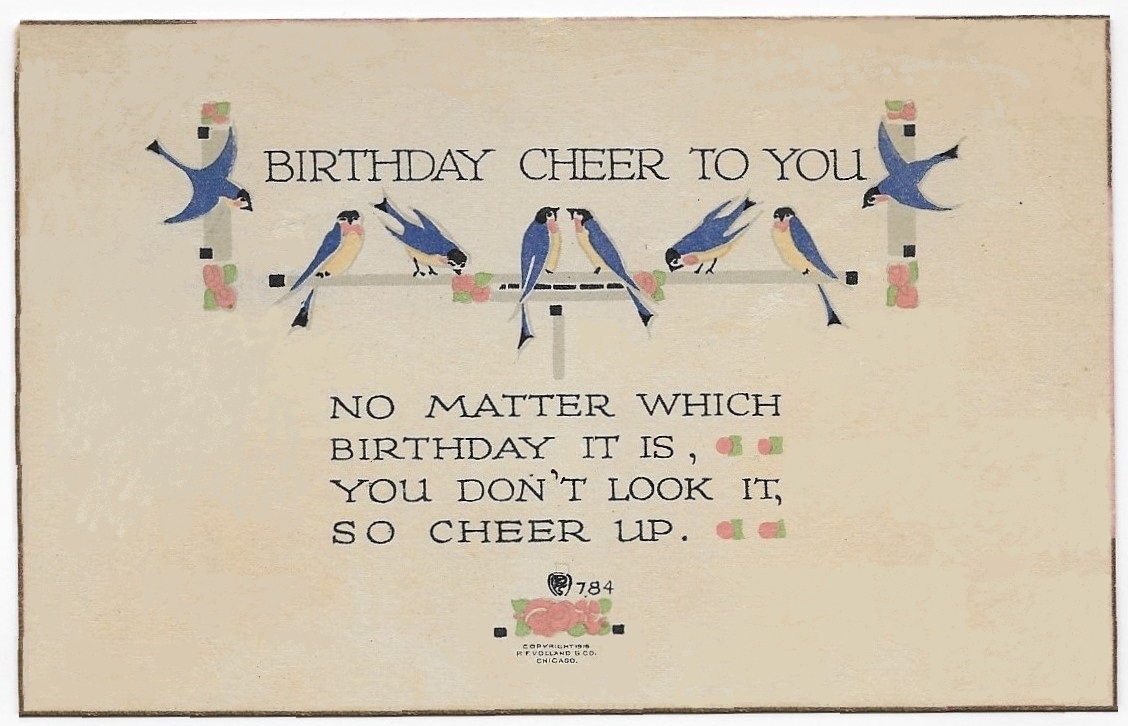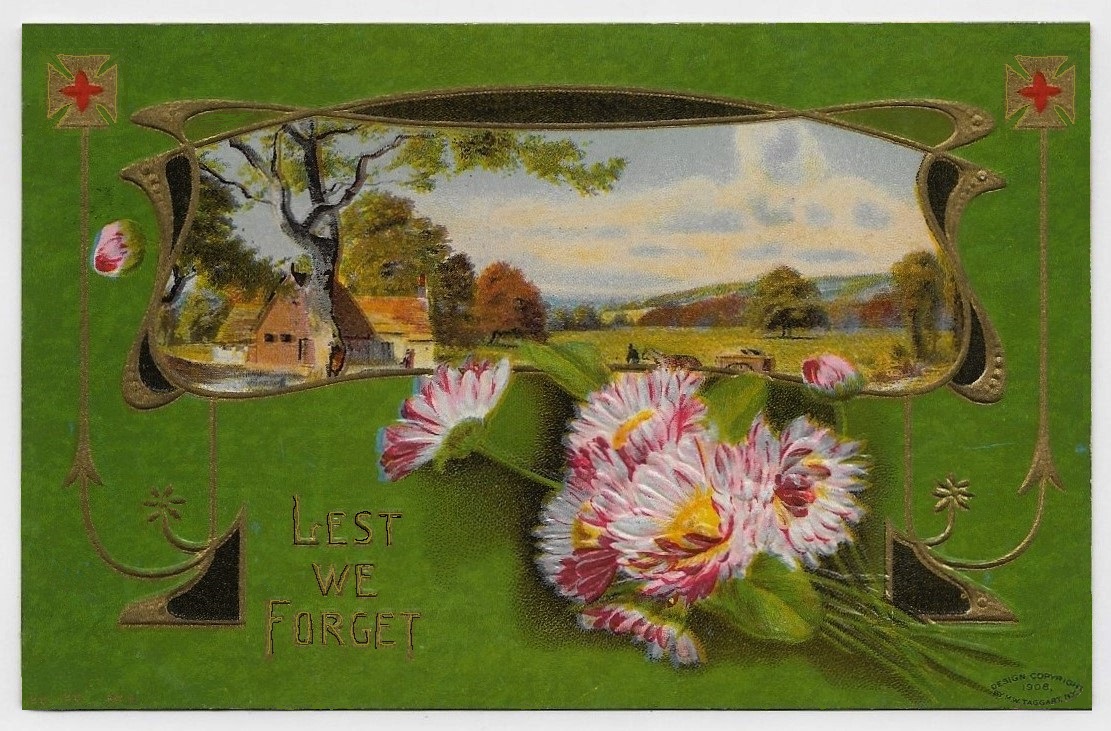It is interesting to note how large food companies have promoted their health, safety, and quality procedures through the early 20th century.
Many advertisements for meat companies were created in response to the widespread public outrage over unsafe meat-packing that arose after publication of Upton Sinclair’s novel, The Jungle, in 1906.
Although Sinclair had hoped to mobilize public opinion about the brutal and unsafe working conditions of meat-packers (many of them recent immigrants from Eastern Europe), the primary effect of the book was to create an enormous outpouring of revulsion about food quality that led to the federal Meat Inspection Act of 1906.
Swift was one of the primary offenders.
The Swift Company began in 1855, when 16-year-old Gustavus Franklin Swift founded a butchering operation in Eastham, Massachusetts.
The company grew rapidly and relocated to cities in New York State; in 1875, Swift and Company was incorporated in Chicago, the center of US meat-packing.
Swift joined Armour and Company in acquiring a two-thirds controlling interest in the Fort Worth Stockyards in 1902 which led, eventually, to an antitrust lawsuit against Swift for conspiring with other companies to control the meatpacking industry.
This postcard was published many years after the safe food frenzy of 1906, but meat companies have emphasized sanitation and quality ever since that time.





